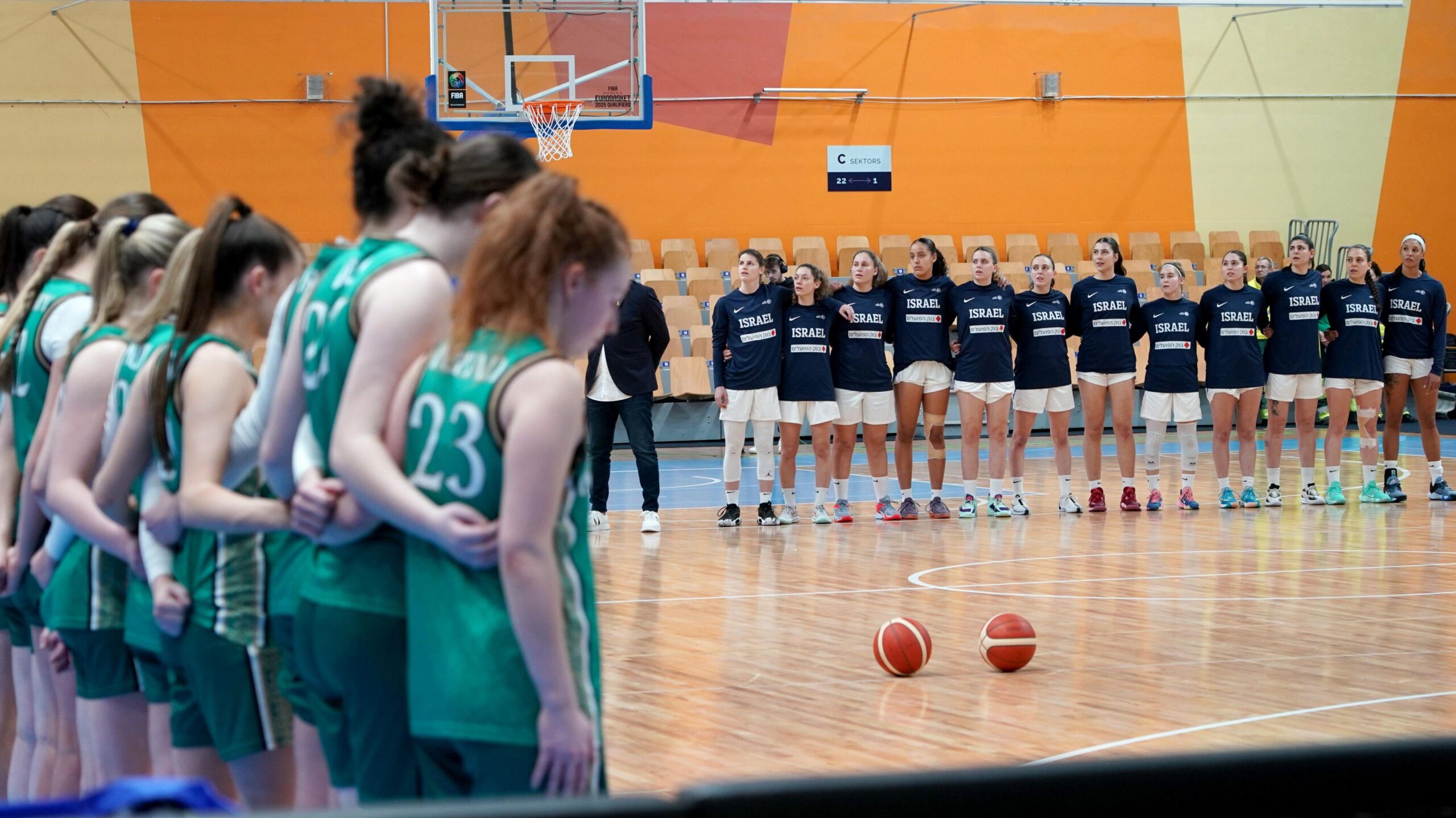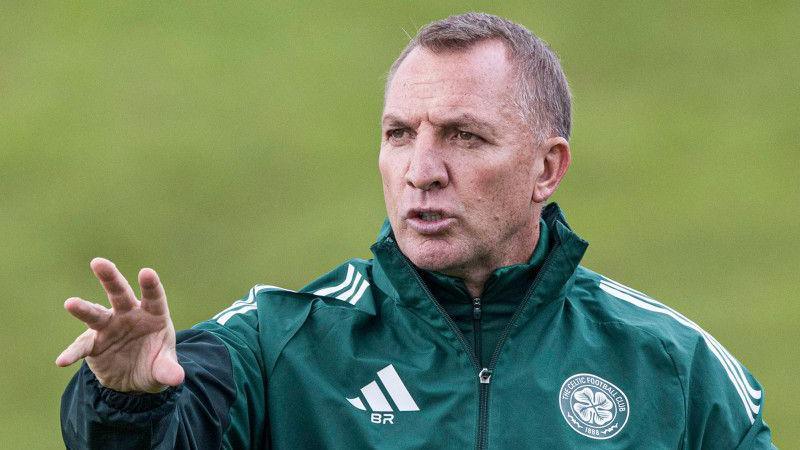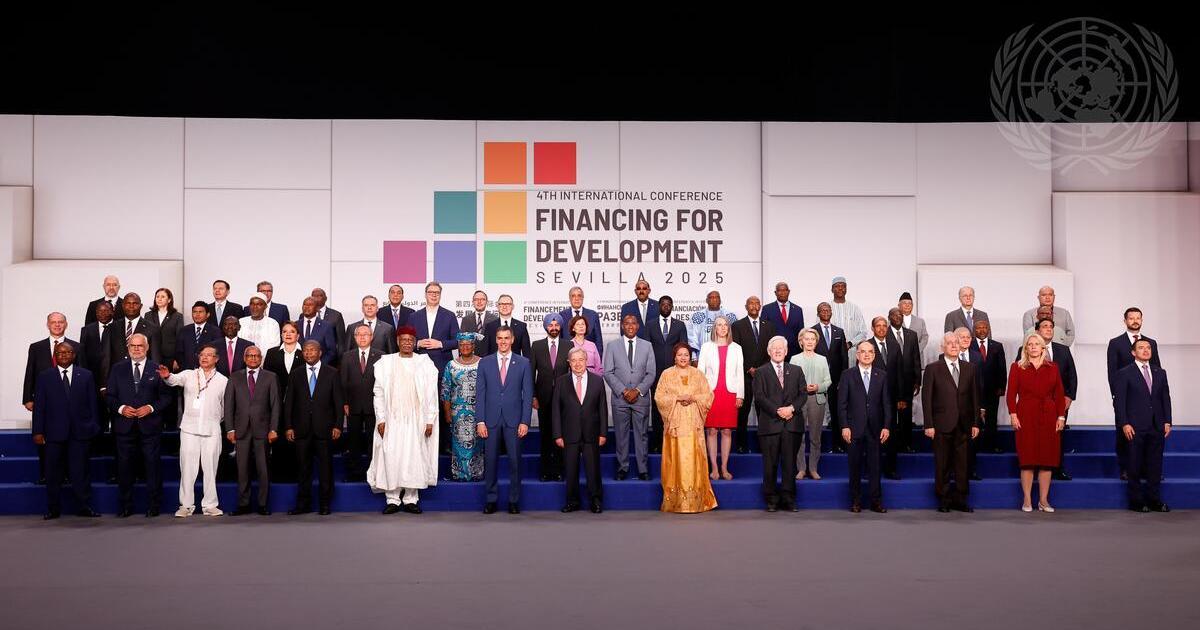The United States did it again. Just a week before the United Nations Fourth International Conference on Financing for Development in Seville, the Trump administration walked out, pulling out of negotiations and refusing to attend the world’s most important conference for coordinating how countries finance sustainable development. It was a dramatic, if familiar, abdication of responsibility. And although the rest of the world adopted the Seville Commitment (Compromiso de Sevilla) outcome document by consensus, the result was far from bold.
Wealthy creditor nations pushed back against a proposal to establish a meaningful UN-led process for addressing debt distress among lower-income countries. The document’s most ambitious provisions on debt triggered formal objections from the European Union, the United Kingdom, Japan, and others. Their resistance made it painfully clear that transformational change in the global financial system will not come with wealthy countries in charge. If low and middle-income countries are to secure the resources and policies they need to invest in their futures, they should take a page from rich countries’ playbook: organise into a club to protect their own interests.
The global economy is held back by a destabilising disconnect between creditor-led promises and borrower realities. The poorest and most vulnerable countries paid a record $96.2bn to service their external debt in 2023, according to the World Bank, with interest costs surging to $34.6bn. More than half of low-income countries are in or near debt distress. Governments are being forced to shift limited public resources away from health, education, infrastructure and climate adaptation to repay debt taken on during periods of low interest rates and looser global financing. These countries may not yet be defaulting on their debt obligations, but they are defaulting on development. The question now is not whether the system must change, but who will lead that change. As UN Deputy Secretary-General Amina Mohammed put it, it is time to “flip the orthodoxy”.
By pooling resources, sharing data and coordinating strategies, debtor countries could begin to shift the balance of power and negotiate from a position of collective strength. A Borrower’s Club offers a path towards a more equitable and strategic approach to debt and development. Without it, governments will remain constrained by a system that drains public resources, weakens institutions, and limits progress on everything from healthcare to climate resilience.
The mounting debt pressures facing the Global South reflect a financial system that consistently disadvantages borrower countries. According to the United Nations Conference on Trade and Development (UNCTAD), at least half of low- and middle-income countries spend more than 10 percent of their tax revenues on interest payments alone. More than 3.3 billion people live in countries where debt service outpaces health spending, and more than two billion people live in countries where education receives less funding than creditors. These pressures are worsening. Loans taken out during the era of ultra-low interest rates are now being refinanced at far higher costs, even as global growth slows and government revenues stagnate. With development assistance falling and financing conditions tightening, public budgets across the Global South are stretched to breaking point.
This is not the first time the world has faced a debt crisis. In the late 1990s and early 2000s, the World Bank and International Monetary Fund (IMF) spearheaded the Heavily Indebted Poor Countries (HIPC) Initiative and the Multilateral Debt Relief Initiative (MDRI), securing debt write-offs for dozens of low-income countries and enabling increased investment in poverty reduction. But those programmes were narrow in scope, slow to implement and left many struggling countries behind. More recently, the G20 introduced the Common Framework for Debt Treatments, intended to offer a coordinated process for restructuring debt. Yet only a few countries have used it, and none have completed it with a durable solution. The process remains opaque, creditor-dominated, and too sluggish to meet the urgency of the current crisis.
In a recent report, economists Joseph Stiglitz and Martin Guzman outlined one of the most credible reform agendas yet proposed: a detailed framework for restructuring sovereign debt that includes longer loan maturities, lower interest rates, and, when necessary, reductions in principal. Their approach is designed for today’s more complex creditor landscape, where commercial lenders and non-traditional actors like China play a major role. But even the best technical proposals need political backing. A Borrower’s Club could help consolidate and amplify these ideas, enabling debtor countries to move in concert rather than in isolation.
By aligning strategies, sharing information, and speaking with one voice, such a club could help shift the balance of power and turn sound reform proposals into actionable policies. It would mirror tactics long employed by wealthy creditors, who have historically coordinated through clubs of their own: the Paris Club, the G7, the G20. Even private lenders have the Institute of International Finance (IIF) to safeguard their interests. Borrowers rarely have comparable collective leverage. A club could begin to change that.
To work, a Borrower’s Club will need political champions, a shared strategy and a clear mandate. It must also confront real challenges. Some governments may hesitate to publicly align themselves with a coalition of heavily indebted countries, fearing market or political backlash. Finance ministers in distress may worry about signalling weakness. There are also complex questions about how to involve major creditors, including private bondholders and lenders such as China. Chinese loan contracts often include confidentiality clauses that prevent borrowers from disclosing their existence or terms, complicating transparency and coordination. What incentives could joint repayment arrangements offer? How would the club interact with the International Monetary Fund or World Bank, whose cooperation is helpful but never guaranteed?
Answering these questions will take coordination and creativity. One option could be to establish a standing borrower-led secretariat to provide technical assistance, legal support and shared data infrastructure for joint negotiations. Participation in the club could be conditional on adopting a transparency commitment, long demanded by civil society. To bring in new lenders, the club could offer pooled repayment mechanisms or third-party trustees, reducing risk for creditors while protecting the fiscal space of borrower nations. Multilateral institutions may not welcome a shift in bargaining power, but they cannot afford to ignore it either.
The idea is not new. In the 1980s, Latin American countries launched an early initiative to coordinate as debtors and increase their collective bargaining power. That effort quickly fell apart as creditors isolated key countries and weakened their unity. Today, however, the context is different. Borrowing countries face shared global shocks, more diffuse creditors, and a fractured international financial order. Efforts by Global South coalitions such as the Organisation of Southern Cooperation and economists like Grieve Chelwa show that momentum is building for borrower coordination. With more data, more cooperation, and more experience, a Borrower’s Club formed today could avoid past missteps and build real influence.
Coordination is never easy, and some governments will be cautious. But with debt burdens rising, budgets under pressure and global financial governance stuck in gridlock, the greater risk is doing nothing. Creditors have had their clubs for decades. It is time borrowers had one, too.







